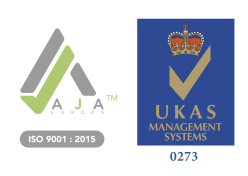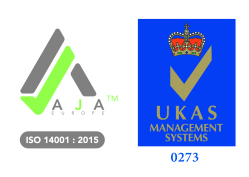How to deal with stress at work (and avoid business burn out)
How to deal with stress at work (and avoid business burn out)
Here, ETD looks at the steps to take to ensure a more productive and less stressful life at work.
For the average employee / employer (so that’s most of us then) stress has become a fact of life. But you may be surprised to learn that stress is the most common cause of long-term absence from work. Over 12 million days are lost at work a year because of work-related stress, depression or anxiety. The enormous damage caused to the wider economy is borne out by figures; the human cost is harder to count…

The impact of stress on safety
Research shows that stress on the job directly impacts workplace safety. Stressed employees are less safe in the workplace with many injuries occurring because workers aren’t taking enough breaks or time off. Or, they have a very heavy workload that isn’t regulated well by management. Extreme fatigue and headaches caused by workplace stress, contribute to workplace injuries and even some deaths.
Dealing with stress in the workplace
As an employer how do you manage toxic stress in the workplace? How do you go about best practice?
Employers have a legal duty to protect employees from stress at work by doing risk assessments and acting on them to prevent staff from experiencing a stress-related illness or accident because of their work.
Managing stress is largely about effective leadership and people management. Managers need to be able to spot the early signs of staff being under excessive pressure or having difficulty coping at work and to provide appropriate support.
It’s important that a manager doesn’t make assumptions and talks to the employee to find out what is affecting them. Organisations should encourage staff to talk to their manager if they think they are becoming unwell. Creating a working environment that proactively supports staff who become unwell will make it easier for staff to tell their manager if they are experiencing stress.
ACAS has some great advice on the causes of work-related stress and how to take steps to reduce this in your workplace.
They offer guidance on spotting a team member that may be experiencing stress, how to approach talking to them and support them.
Signs that a team member may be stressed include:
•Changes in the person’s usual behaviour, mood or how they interact with colleagues
•Changes in the standard of their work of focus on tasks
•Appearing tired, anxious or withdrawn and reduced interest in tasks they previously enjoyed
•Changes in appetite and / or increase in smoking and drinking alcohol
•An increase in sickness absences and / or turning up late for work
=========================
Tips for reducing stress. Handy guide for employees on how to reduce stress.

Be stress-savvy
By this we mean be aware of what stress is so you can avoid getting to the point of “business burn out”. You’re not superwoman or superman. Your body and mind are vulnerable to stress. Stress shouldn’t be ignored. Too much stress can lead to weakened immunity (more frequent illnesses, visits to the doctor), fatigue and depression.
Learn to recognise what is causing you stress: Over-commitment, over-worked, traffic, deadlines… having to deal with difficult colleagues?
Realise that stress isn’t what is happening to you, it’s your response to those external factors, and there are ways you can take control; coping mechanisms you can learn. As we’ve already mentioned, stress is part and parcel of modern life: It can’t be eliminated or escaped, but it can be managed and reduced.
Learn to say no!
You may think you can’t say no at work and yes is the easier option but at what cost? If you’re juggling too many plates or your plate is piled too high with deadlines and commitments, you may need to learn to say no to your employer, while explaining that if you are over-stretched you won’t be able to give the job your best and complete the tasks to the best of your ability.
Learn to relax.
Easier said than done we know! But instead of charging round at 100 miles per hour, perhaps think about recharging your batteries to reduce your stress.
Breathe.
Meditation isn’t just for monks any more, smartphone apps like headspace are hugely popular. The company that owns the guided meditation platform Headspace reports it has 8.5 million active users, which include Wall Streeters, Olympic athletes, and celebrity executives like Arianna Huffington and Richard Branson. Companies like Goldman Sachs and the Dana-Farber Cancer Institute have bought package subscriptions for employees.

Eat right
Diet and nutrition can have a massive impact on stress. Your food choices can make your stress levels go up or down. Scientists believe that carbohydrates cause the brain to increase levels of serotonin, a hormone that relaxes us. But before reaching for the chips, bear in mind that the key is eating low-fat, high-fibre carbohydrate-rich meals with plenty of fresh fruits and vegetables.
Other types of foods can reduce stress by lowering the levels of hormones that trigger it.
Vitamin C: Consuming foods high in Vitamin C, such as oranges and onions (yes onions! So that Friday night curry can actually be good for you if it’s low in fat) can reduce stress and boost the immune system.
Exercise regularly
Exercise releases feel good chemicals called endorphins. Walking, running, dance, stretching, anything that gets your body moving gets your endorphins flowing, and presses pause on your stress response.

Get enough sleep
It’s not a new one this, your parents and grandparents probably told you to get a good night’s sleep. Simple but effective. Never underestimate the power of a good night’s sleep as it will make it easier for you to tackle the next day’s stress. When you’re tired you’re more easily irritated and agitated, which can increase stress.
Switch off from social media
Ignoring social networks can be a simple way to quickly reduce stress.
Research has found that people feel less stressed and distracted after 24 hours without phone notifications. The theory is that compulsively checking for social networking updates causes stress. Apart from social notifications, employers can help by encouraging their employees to switch their phones off, cut the number of work emails sent out of hours, reduce people’s temptations to check their devices.







